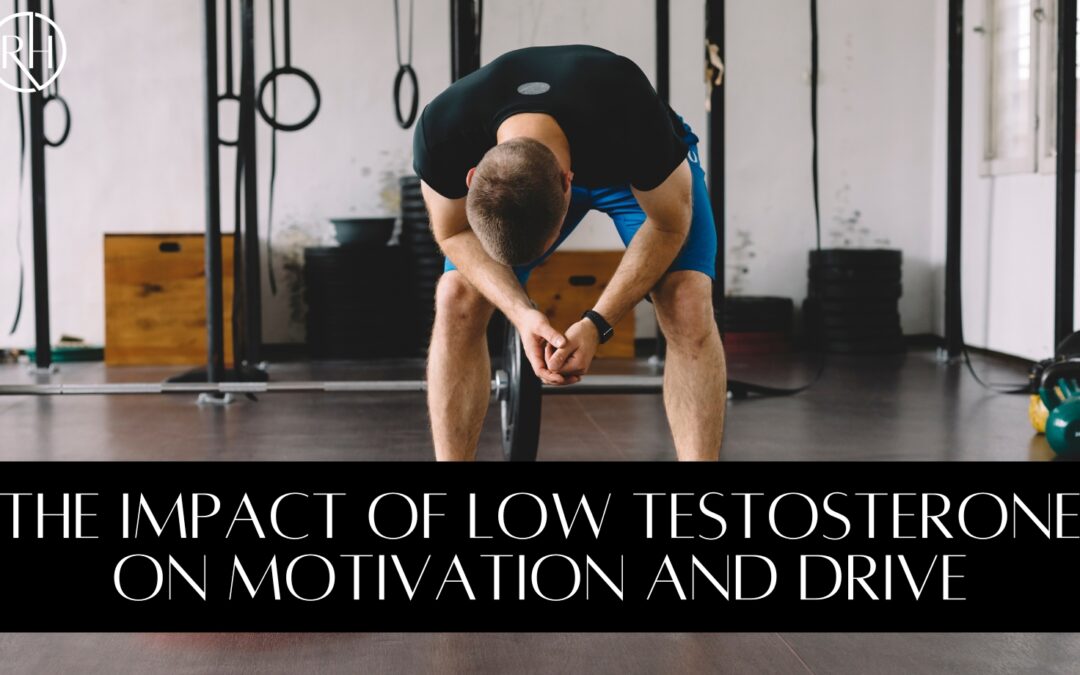Motivation and drive are essential components of human behavior, influencing our ability to achieve goals, overcome obstacles, and maintain a sense of purpose. While numerous factors contribute to these psychological attributes, one key player is testosterone, a hormone primarily associated with male sexual development. However, testosterone’s influence extends beyond reproductive functions, as it also plays a vital role in regulating various aspects of behavior and cognition.
People don’t like to think that their hormones can affect their mental state. They prefer to attribute their emotions and feelings to their temperament, thoughts, and the external factors that affect them. But hormones play a much more significant role than you might think in governing how we behave and the way we respond to events and people. In particular, when your testosterone levels are too low, it can significantly affect your motivation and drive, which means that a hormonal imbalance can materially affect your performance when it comes to accomplishing work, engaging in activities, and fostering good interpersonal relationships.
To Achieve Goals, You Need Motivation and Drive
Motivation can be defined as the strength of your desire to initiate and sustain goal-directed behavior. Studies have shown a positive association between testosterone levels and motivation, with higher levels of this hormone often linked to increased goal-oriented behavior, assertiveness, and competitiveness. Testosterone acts on neural pathways and structures implicated in reward processing, such as the production of dopamine. When released in the brain, dopamine is a hormone that bestows a sense of happiness and well-being. Testosterone’s effect on motivation thus ultimately influences the brain’s response to incentives and reinforcing behavior, helping a person to become and stay motivated.
Drive is slightly different than motivation, but the two go hand in hand. While motivation is about the desire and focus you need to achieve a particular goal, drive can be understood as the mental energy and stamina you need to persevere in achieving that goal, despite difficulties or the passage of time. Drive helps you overcome obstacles and persist so your goals are ultimately reached.
When testosterone levels are low, individuals may experience a decline in their drive to pursue goals and engage in the activities they must accomplish to reach those goals. This diminished drive can manifest as a lack of initiative, reduced productivity, and decreased interest in previously enjoyable endeavors. Low testosterone levels may disrupt the reward circuits in the brain, which means that you will not receive the positive reinforcement that keeps you moving forward. Individuals may struggle to experience the same level of satisfaction and fulfillment from activities that once motivated and sustained them.
Impact on Cognition and Mood
Testosterone levels also impact the cognitive processes closely tied to motivation and drive. Attention, memory, and spatial abilities are all crucial for being able to focus on achieving long-term goals. Low testosterone levels make it difficult to concentrate and impair your mental agility, so milestones and goals are harder to achieve. Achieving any complex long-term goal is difficult and often requires overcoming the inevitable problems or barriers that arise. Success can depend on the ability to remain positive and confident despite obstacles. When cognitive impairments inhibit your ability to achieve interim milestones, you do not receive the positive emotional stimuli you need to stay motivated.
Low testosterone levels influence your mood and can lead to depression, irritability, weight gain, and fatigue. These negative states dampen motivation, making the achievement of any goal more challenging. In some cases, you may become utterly ambivalent about whether or not you achieve your goals. That lack of caring saps your energy and diminishes your drive. Unfortunately, negative feedback can create a self-perpetuating downward cycle, further inhibiting your ability to achieve.
REVV Health Can Help Men With Low-T
Testosterone, beyond its role in sexual development, significantly influences motivation and drive. Men who experience apathy or irritability do not always associate it with a hormonal imbalance. If they sense a change in their demeanor, all too often, they chalk it up to age or external circumstances in their lives – even when they know that the setbacks they experienced when they were younger did not similarly impair their motivation and drive. If you notice a significant change in whether you can set and meet goals, a hormonal imbalance may be a primary culprit. Low testosterone levels can disrupt the intricate balance necessary for maintaining goal-oriented behavior, impacting cognitive processes, emotions, and mood.
While other hormones can also affect motivation and drive, understanding the effects of low testosterone is essential for identifying and addressing changes in how you manage to achieve goals. To reach your full potential, it is critical to have your hormonal levels measured and checked. While your doctor may tell you that your hormone levels are “normal,” that is not the same as maintaining optimal hormonal balance.
At REVV Health, we want you to live your best life. With a simple blood test undertaken periodically, we can analyze your hormonal levels to determine if low testosterone or other hormonal imbalances contribute to how you feel, handle challenges, and perform. In many cases, through recommended lifestyle changes and by prescribing natural compounds to supplement your diet, we can enable you to feel better, regain your energy, and help you achieve your full potential. To find out how you can restore the motivation and drive you once had, contact REVV Health today.


